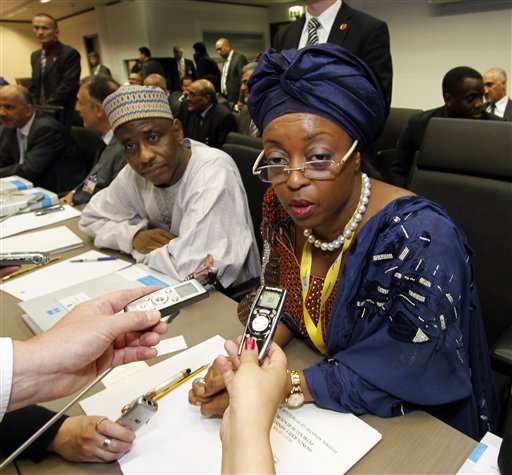In stark contrast to its previous rancour-filled and controversy-raising debates, the contentious Petroleum Industry Bill (PIB) went through a smooth second reading, surprising many in the gallery of the Senate yesterday.
The Senate gallery was filled to the brim with expectant watchers hoping for a stormy session after the revelation that Northerners own 83 per cent of oil blocks in the country. However, they were disappointed when the bill went through without any opposition to the committee stage.
Senate President David Mark, who summed up the contributions by senators, declared that the bill was not a North versus South affair, as what was good for the North was good for the South and vice versa.
He concurred with the opinion of many senators that the bill was the life-wire of the country, with both national and international interest and impact.
He said: “We are very united on the fact that so much power is given to the Minister, particularly where the minister can grant lease unconditionally; you can also revoke lease unconditionally.
“We also all agreed that the frontier exploration services should be properly funded and independent and the time within which it will complete and start prospecting for oil in all parts of the country.
“Those who spoke very strongly for South-South or Niger Delta also emphasised this, and this was an area where people expressed fear.
“The fact of the matter is that we all need to be on the same wave-length.
“I must emphasise that the bill is not North versus South; far from that, because what is good for the North is also good for the South and what is bad for the South, is bad for the North.
He said that the bill will go for second reading and public hearing, during which it shall have amendments, additions and subtractions to it.
He also made it clear that what was before the Senate was still a draft bill and not the final version.
“So I want to say that the bill is a worthy bill. The important thing is whether the bill guarantees the transparency we want in the petroleum sector, because that is a key issue because there is no transparency at the moment.
“Does the bill ensure that more revenue accrue to the government and by extension to the people and more importantly does the bill ensure the independence of the new companies that will come out from the unbundled Nigeria National Petroleum Corporation (NNPC) and, finally, does the bill encourage investment? Does it provide an enabling environment for investors to come and invest in Nigeria?
“We are all conscious of the fact that almost all African countries are nearly oil producing countries, so the competition is stiff more than what it used to be before.
“There is also the issue of host community fund; that is the one that is most contentious. But the background to it is that the monies accruing to the Niger Delta have not been properly utilised. That is the fear that is the underlining fear of everybody.
“Everybody that spoke here agrees that the host community needs to benefit; it is how they benefit that has been a problem. The fear is whether the 10 per cent for the host community will be another pipeline where a few characters would hijack it at the expense of the host community.”
However, he rejected the idea of an ad-hoc committee to consider the bill at the committee and public hearing levels.
He also voiced out his concern on certain parts of the bill, which he termed ‘impracticable’.’
“There are so many things in this bill that are impracticable, such as the issue of pipeline passing through communities.
“I think in theory they may sound nice but if a pipeline and the current pipeline from Kaduna passes through my local government and through about three, four local governments.
“How is each of the local governments going to quantify for the money that would be given to us? Is it by the length of the pipe that goes through or by the volume of products that is pumped through? It is not just a practicable thing.
“To me it is just an avenue where a handful of people will come together and manipulate government and then siphon money.”
The Senate President also emphasized the need for a regulatory body to control the industry, saying that the bill must ensure transparency in the industry because information on the happenings in the industry was controlled by few people.
“I do not know what is happening in that industry and I have tried to (know) but it looks like a Mafia world where nobody is willing to tell you anything.
“So the bill must ensure that the industry is opened up and there is transparency.”
He commended the drafters of the bill for attempting to make it an exceptional bill, even as he criticized the exempting of the bill from the Procurement Act, which he described as ‘scandalous’.
Senator Olubunmi Adetunmbi (Ekiti North) said his position on the bill is largely that of regulation because there are basic principles for legislating for regulatory authorities.
He said: “For every commercial sector of the economy in Nigeria, there is a distinct regulatory authority that is established by the Act of Parliament. We have the Central Bank of Nigeria that is regulating financial services. You have Civil Aviation Authority that is regulating the aviation sector. You have PenCom for Pensions and you have NIACOM for Insurance.
“The question is, what is the regulatory agency for the petroleum sector?”
The bill was passed over to the joint committee of Petroleum (Upstream), Petroleum (Downstream), and Justice and Human Rights.
The joint committee was given six weeks to work on the bill and conduct public hearing before returning it to the committee of the whole for clause-by-clause consideration.

